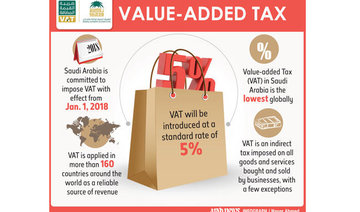RIYADH: The Ministry of Health carried out 31,152 visits to patients in 2017 under the Home Health Care Program.
Dr. Ali Al-Ghamdi, director general of the program, said 320 medical teams averaged 2,000 visits per day this year.
“We treat those who are bedridden, terminally ill and cerebrovascular accident patients,” Al-Ghamdi, who is also a family physician consultant, told Arab News on Thursday.
He said if a person suffered from a cerebrovascular accident, blood could not enter a certain part of the brain and the patient would be unable to move the left or right side of their body.
He said that most of the bedridden patients were elderly and had multiple chronic conditions due to diabetes or hypertension.
The ministry has been implementing the program since 2009 in 213 hospitals in all regions and governorates of the Kingdom, and is currently serving 30,538 patients.
During the same period, 1,728 new patients were admitted while 7,440 were discharged from the service.
“I think the Health Ministry is rendering an invaluable service to patients under the program,” Al-Ghamdi said. “The patients are treated in their homes, where they can be with their families so they can have a positive psychological and social outlook on life.”
Through the program, the ministry was “also giving an opportunity to hospitals to admit more patients as we take patients home so that hospitals can accept more serious cases,” he added.
“The program visits homes as a health care team comprising a physician, two nurses, physiotherapist, dietitian and social workers,” said Al-Ghamdi, who has been with the ministry for 27 years.
The ministry has provided home health care services through a qualified health team to patients in their homes who meet the criteria in all regions and governorates.
Saudi health care program carries out 31,152 visits in 2017
Saudi health care program carries out 31,152 visits in 2017

Saudi Cabinet reviews cooperation and agreements with other nations

- Crown Prince Mohammed bin Salman chairs meeting and briefs ministers on his recent meeting with Egypt’s President Abdel Fattah El-Sisi
- Cooperative efforts includes projects focusing on development and education, political consultations, environmental protection, health, investment and air transport
RIYADH: Saudi Arabia’s Council of Ministers reviewed a number of domestic and international matters during a session in Jeddah on Tuesday chaired by Crown Prince Mohammed bin Salman.
The crown prince briefed the Cabinet on his recent meeting with the Egyptian president, Abdel Fattah El-Sisi, which included discussions about regional security and stability, the latest developments in the Middle East, and other topics of importance to the Arab and Islamic world, the Saudi Press Agency reported.
He also shared with ministers the contents of a letter he received from the president of Kazakhstan, Kassym-Jomart Tokayev.
The council discussed progress in cooperative efforts involving Saudi Arabia and other countries including Kyrgyzstan, Pakistan, Armenia, Turkmenistan, Estonia, Cuba and Kiribati, and approved a number of memorandums of understanding.
The cooperation includes projects focusing on development and education, political consultations, environmental protection, health, investment and air-transport services, the press agency said. Ministers also approved an agreement between the Saudi General Authority for Awqaf and its Omani counterpart relating to endowments.
They reviewed national initiatives, including one for the promotion of charitable work, and the enhancement of humanitarian and developmental efforts across the country.
A merger of the National Competitiveness Center with the Saudi Center for Economic Business to create a combined Saudi Competitiveness and Business Center was authorized.













